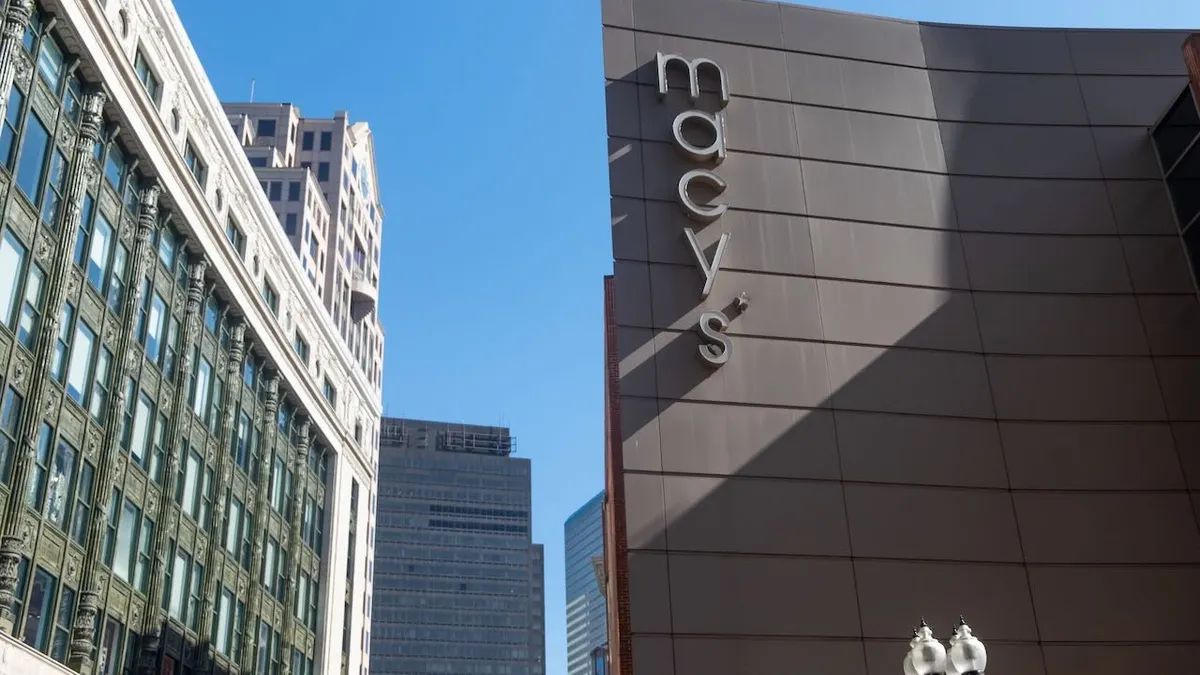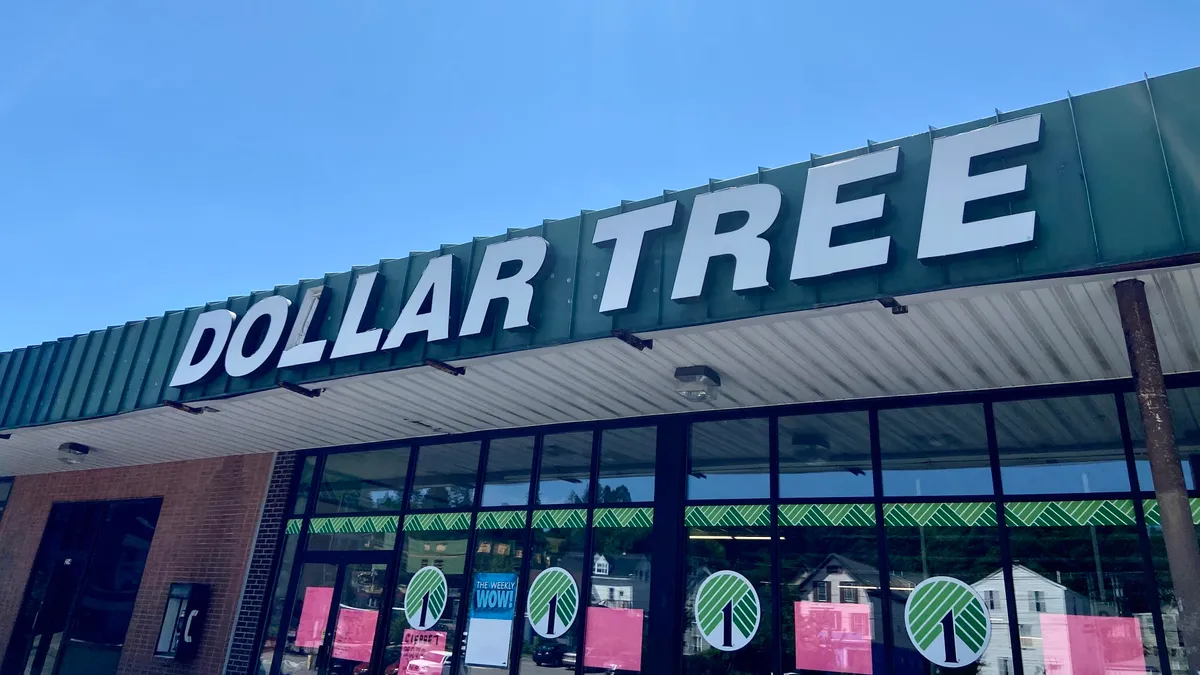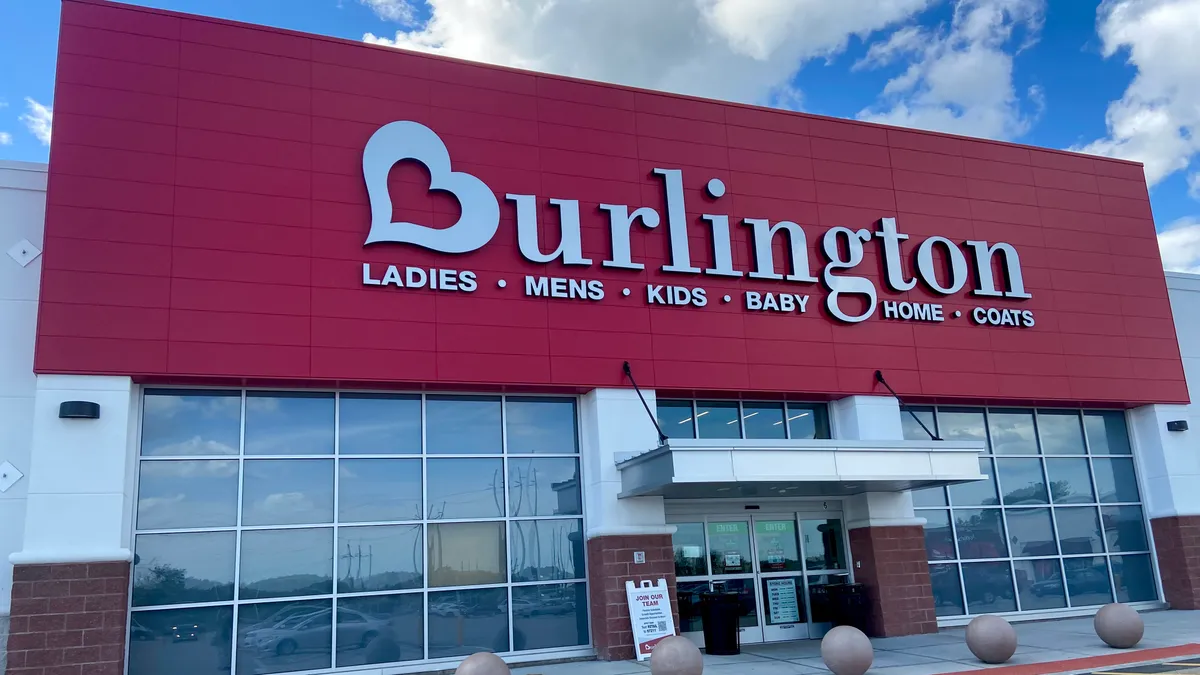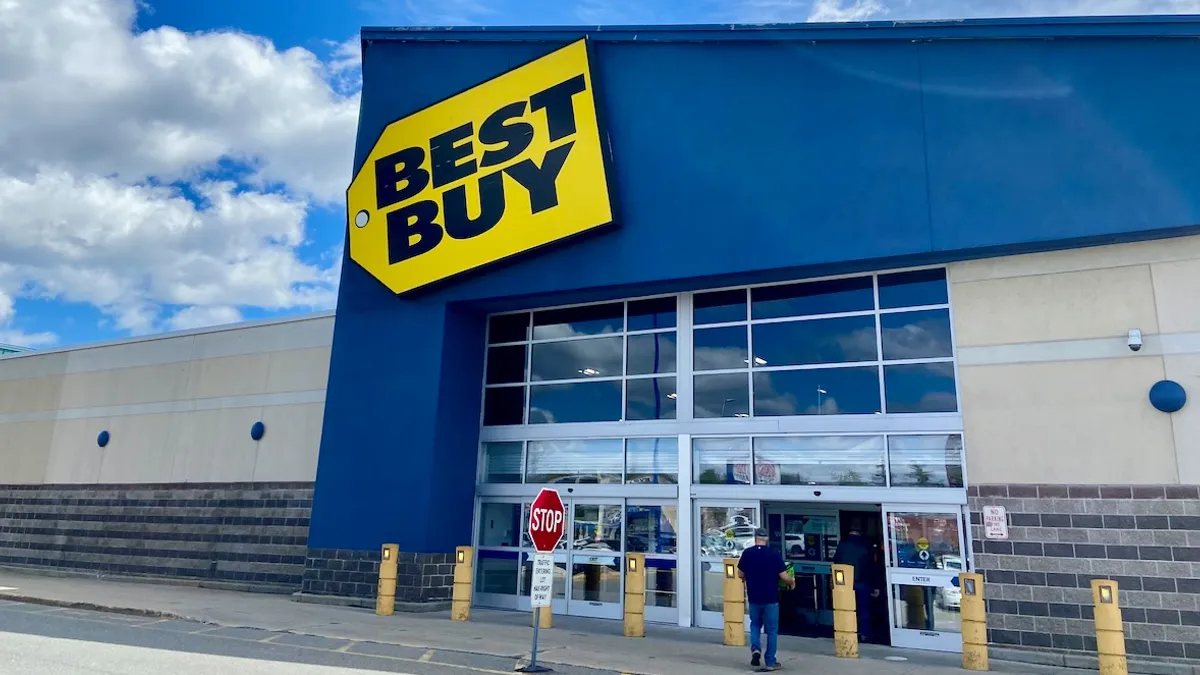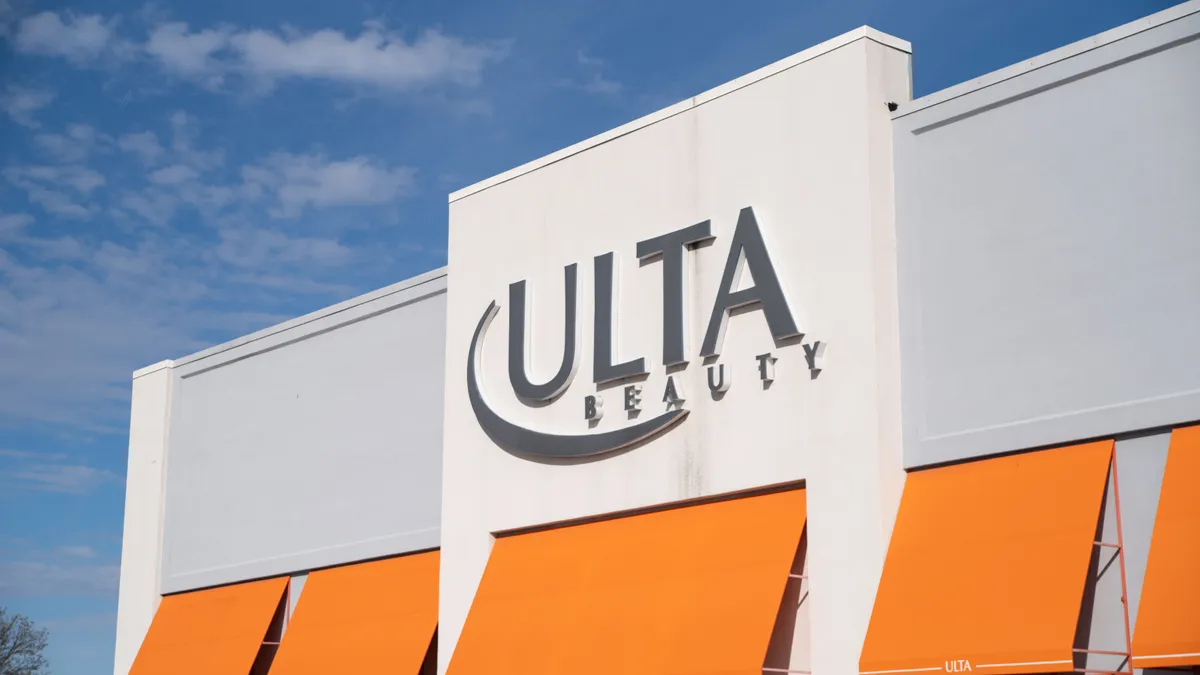Barnes & Noble was on the brink of a sale this summer when a tussle between company executives, including founder Leonard Riggio and ousted CEO Demos Parneros, escalated into tit-for-tat lawsuits pointing the finger at who had caused the deal to crumble. The company blames Parneros (who was fired for violating company conduct policies) for "intentionally sabotaging" the deal, while Parneros said he had nothing to do with it going sour.
In his August-filed lawsuit, Parneros revealed there had been a deal on the table with an unnamed "bookseller." On Tuesday, The Wall Street Journal named British book chain WHSmith as the mysterious suitor, citing sources familiar with the matter. The new information, which has not been independently verified by Retail Dive, sparks new questions about what a deal would have looked like and about the path forward for Barnes & Noble as it considers strategic alternatives, including a sale, and heads into the holidays without a CEO.
Barnes & Noble and WHSmith declined to comment to Retail Dive.
Who is WHSmith?
WHSmith made its mark in the 19th century first as a magazine and newspaper business profiting off of the rise of commuter railroads and the need for reading material while traveling. In the decades since, the company added a small book assortment and a large consumer electronics selection as it built out 600 stores in travel hubs like airports, train stations and hospitals as well as on main street.
The company competes with other U.K. booksellers like Blackwell and Waterstones, but has a much bigger focus on travel. As of late, the company has been looking to make a bigger international push, particularly into the U.S.
At the end of last month, the company bought U.S.-based travel retailer InMotion Entertainment Group for $198 million, as part of an expansion of its international travel division. That unit generates roughly two thirds of its business profit, and the new deal is expected to double WHSmith's international travel business. InMotion describes itself as the largest airport-based digital accessories retailer in the U.S. with over 120 stores.
An investment in travel comes as the British retailer is struggling with its high street business. The company recently announced a restructuring of its stores, including the closure of six and a review of its cost base.
"Whether it's profitable, I don't know, but it is logical that people in airports are more likely to be dependent on print."

Mike Shatzkin
CEO of The Idea Logical Company
WHSmith differs from Barnes & Noble in many ways, the most obvious being that it actually doesn't sell all that many books when you consider its total assortment. Similarly to book chains like Canada's Indigo Books and Music and France's FNAC, WHSmith has moved beyond its core as a print bookseller into the higher priced consumer electronics category.
To make that model work, businesses have to get private label right, according to Joel Silver, former president of Indigo Books and Music. "It's a category to be careful of," he told Retail Dive in an interview.
A push into airports is a logical move for WHSmith, longtime book industry consultant and CEO of The Idea Logical Company Mike Shatzkin told Retail Dive in an interview. "Whether it's profitable, I don't know, but it is logical that people in airports are more likely to be dependent on print," he said. "And they certainly can't order a book from Amazon for later delivery."
Barnes & Noble hasn't made a play for airports, so mulling the acquisition of a big-box retailer would have been a slightly different strategy. "Chances are WHSmith wanted someone who was set up to do business in the U.S. with retail locations and all of the necessary arrangements," he said. To that end, Barnes & Noble would be an attractive buy for any international player looking for a way into the U.S. market, he added.
What now?
As the holidays quickly approach, Barnes & Noble is still formally considering strategic alternatives, including a potential sale of the business. It has previously said it has seen interest from multiple parties. The company is also searching for its next CEO — it's fifth in about as many years.
"Barnes & Noble needs the next wave of both investment and management," Silver said, adding that going private may be the best way to do so.
But, with highly contentious public lawsuits on the line, finding talent and a suitable buyer may be adding insult to injury.
"I think they have a lot of challenges to get over, but a ton of value there if someone wants to come unlock it with capital and expertise," Silver said. But first, it has to get through holiday. The company has struggled with plummeting sales the last several seasons.
That said, Barnes & Noble is not on the edge of financial collapse unlike other big-box stalwarts.
"Barnes & Noble isn't on the brink of failure. It's a real business. It makes sales, it has cash flow, it has good operations that function and work with a lot of the people having been in those jobs for a long time," Shatzkin said. "They do need to make changes over time because business is shrinking, but my sense is it's not shrinking crazily. Not so that there's an emergency."






